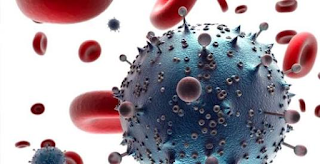A team of Yale researchers tested a new chemical compound that suppresses HIV, protects immune cells, and remains effective for weeks with a single dose. In animal experiments, the compound proved to be a promising new candidate to enhance current HIV treatment regimens-without increasing toxic side effects.
The finding builds on the work of senior co-authors Karen S. Anderson and William L. Jorgensen, who used computational and structure-based design methods to develop a class of compounds that target a viral protein essential for HIV to replicate.
The researchers refined this class of compounds to boost potency, lower toxicity, and improve drug-like properties in order to identify a promising preclinical drug candidate. In collaboration with Priti Kumar’s lab at Yale, the drug candidate was tested in mice with transplanted human blood cells and infected with HIV.
In the humanized mice, the compound achieved key goals of HIV treatment: It suppressed the virus to undetectable levels in the blood; it protected the immune cells that the virus infects; and it worked synergistically with approved HIV medications, the researchers said.
Additionally, working with Yale drug delivery expert Mark Saltzman and his laboratory, the researchers found that the effects of a single dose of the compound, delivered in a long-acting nanoparticle form lasted for a month. The compound has potential for improving treatment for HIV.
haleplushearty.blogspot.com


